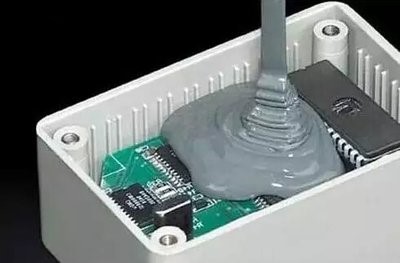Low Dk and lightweight adhesive development, you can try hollow glass beads!!
Adding hollow glass microspheres to adhesives can achieve effects such as lightweighting, reducing VOC emissions, and decreasing resin usage~
Hollow glass microspheres, as fillers, can effectively enhance the added value of products. In adhesives, they mainly serve the following purposes:
1.Reduce density, lightweighting.
2.Decrease resin usage, lowering costs.
3.Improve the adhesive's dielectric properties.
.jpg)
.jpg)
▲ Schematic diagram illustrating the application of hollow glass microspheres in adhesives (as shown above).
Hollow glass microspheres are an innovative new material with micron-level smooth surfaces, primarily composed of borosilicate glass. Under a microscope, they appear as hollow, transparent spheres with low density, high strength, high temperature resistance, acid and alkali resistance, low thermal conductivity, and electrical insulation properties. They also exhibit excellent fluidity, chemical stability, and dimensional stability.
Hollow glass microspheres are lightweight, hollow, high-strength glass spheres with the highest strength-to-density ratio. They are suitable for use in adhesives such as organic silicon, epoxy resin, acrylic, polyurethane, synthetic rubber, and more. Their inherent characteristics impart a series of excellent properties to adhesives:
1.Microsphere Effect: With minimal surface area to volume ratio and low oil absorption, it reduces resin usage, resulting in adhesives with lower viscosity. This enhances the flowability and processability of adhesives, maintaining consistency to prevent warping and shrinkage due to inconsistent stress.
2.High Chemical Stability: As a filler, it does not react with substrates or other materials, making it suitable for various systems.
3.Hollow Spheres: Low density reduces adhesive density and overall volume cost. Low thermal conductivity imparts soundproofing, heat insulation, and low thermal conductivity characteristics to adhesives.
4.Micron-sized Particle Diameter: Improves adhesive rheological properties and enhances thixotropy. Filling small microspheres into large microsphere gaps increases solid content, reducing VOC emissions. They disperse easily without aggregation.
5.It can also create a sanding effect to improve the wear resistance of resins and enhance material dielectric properties.
6.The color is white, ensuring good color compatibility.
Therefore, adding the appropriate proportion of hollow glass microspheres can effectively enhance product performance and reduce production costs.
Practical Application Description
a. Epoxy Structural Adhesive
Adding 3-5% microspheres to epoxy structural adhesives can achieve a weight reduction of 15-25% without compromising adhesive strength, reducing resin usage and production costs.
This application is suitable for epoxy structural adhesives used in wind turbine blade assembly and aerospace applications.
b. Automotive Lightweight Adhesive - Chassis Coating and Body Sealant
PVC plastisol is a mixture of PVC resin and plasticizers that can be cured by heating.
In automotive applications, it serves as a chassis impact-resistant coating, rust inhibitor, and seam sealer. Adding approximately 10%, it prevents gravel impact on the chassis, provides corrosion resistance, isolates road noise, and protects weld seams.
*An adhesive for a sedan weighs approximately 20kg, for a medium-sized vehicle around 16kg, and for a heavy-duty vehicle about 22kg. Adding hollow glass microspheres can reduce the weight by 15%-25%, contributing to energy saving and carbon reduction.
c. Potting Compound
Widely used in electronic adhesives for bonding, sealing, potting, and coating protection of electronic components.
Common types include epoxy resin potting compounds, silicone potting compounds, and polyurethane potting compounds. The main purpose of adding hollow glass microspheres to potting compounds is lightweighting, adjusting resin density, and providing insulation. The addition ratio is typically between 10-25%.

*Performance Requirements for Electronic Adhesives:
- Low dielectric constant and loss
- Good adhesive strength
- High insulation properties
- Resistance to moisture and heat aging
- Extremely low viscosity
- Process stability
CONTACT US
Kelly Chemical Corporation
Electronics
TEL:(02)2762-1985 ext 11200
Online Message
Leave your contact information,
and we will get in touch with you soon.
Email Consultation
After receiving your email,
we will process it as soon as possible.send Email